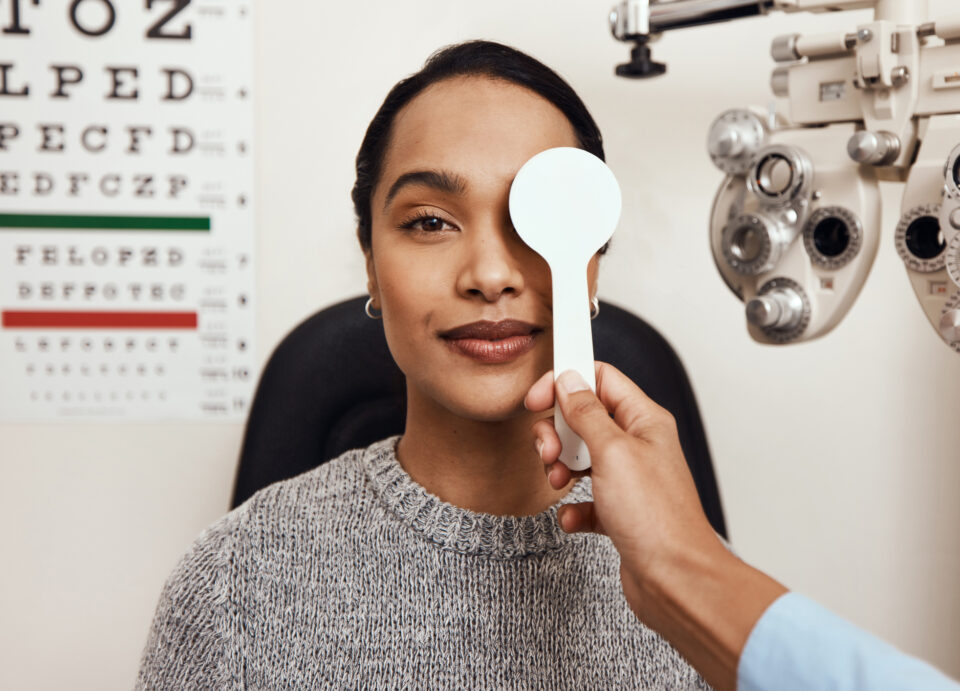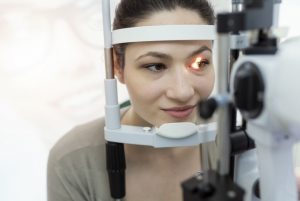How To Prevent Age-Related Eye Disease


 Once we pass the age of 40, we become prone to developing certain vision related conditions like cataracts and possibly macular degeneration. However, as I tell my patients, become proactive now to protect your vision! First, let me explain a little about both of these conditions.
Once we pass the age of 40, we become prone to developing certain vision related conditions like cataracts and possibly macular degeneration. However, as I tell my patients, become proactive now to protect your vision! First, let me explain a little about both of these conditions.
Cataracts are an outgrowth on the lens that distorts vision. Over 17% of Americans over 40 have cataracts and it is a very common vision problem. They are caused by aging, over-exposure to ultraviolet light, as well as oral and spray (as in asthma inhalers) steroids that get in the eyes.
Cataracts typically have been treated in the past with traditional or laser surgery. However, Russian researchers have shown remarkable success in reversing cataracts with eye drops containing a powerful antioxidant, n-acetyl carnosine, or NAC.
In contrast, age-related macular degeneration (ARMD) can be a genetic eye condition, as well as age-related, with uncertain causes. However, researchers feel that unhealthy, low-antioxidant, high fat diets, and smoking, may contribute to the development of the condition. Over 1.6 million Americans are affected by macular degeneration and can mean serious vision loss.
The macula, part of the retina that gives clear vision, becomes damaged by blood vessel abnormalities resulting in decreased light sensitivity and central vision. There are two types, dry (the most common) and wet (least common, but more vision damaging).
Interestingly, recent studies have shown an association between cataract surgery and the development of macular degeneration. It seems reasonable then, that if you could prevent, or reverse, cataracts naturally you could reduce your risk of developing macular degeneration.
Prevent Cataracts and Cut Your Risk of Developing ARMD
 The following are the same strategies I give my patients to prevent cataracts, and reduce their risk of developing macular degeneration.
The following are the same strategies I give my patients to prevent cataracts, and reduce their risk of developing macular degeneration.
- Comprehensive eye exam – this is necessary to screen for cataracts and macular degeneration and other eye conditions. Know your genetics. If anyone in your family has ARMD, your risk is 2.5 times higher than average.
- No smoking – smoking is a major contributor to the development of macular degeneration. It cuts off essential oxygen to the eye and causes arterial hardening and shrinkage.
- Protect eyes in bright light: Wear a hat or sunglasses in bright sunlight to protect eyes from ultraviolet light.
- Shield eyes from steroid spray: If you use aerosol steroids for asthma, be sure to close, or otherwise, shield your eyes when you insert the inhaler in your mouth. Some of the spray can travel up and get into your eyes. If you take oral steroids, tell your doctor your concerns of possibly developing cataracts from them. See if an alternative to them is available.
- Heart healthy diet: A diet healthy for the heart is healthy for the eyes because plaque formation can lead to both coronary artery disease and macular degeneration. Limit saturated fat to between 20-25% of total calories.
 Exercise: Again, a heart-healthy exercise regimen will also benefit your eyes. In addition, your eyes get the benefit of much-needed oxygen. Try for 30 minutes everyday of an outdoor exercise like walking, bicycle riding.
Exercise: Again, a heart-healthy exercise regimen will also benefit your eyes. In addition, your eyes get the benefit of much-needed oxygen. Try for 30 minutes everyday of an outdoor exercise like walking, bicycle riding.- Antioxidants: Vitamin C, beta carotene, zinc, resveratrol, selenium, Vitamin E. It’s hard to get the right amount of these in foods alone, so a good anti-oxidant supplement is the best insurance. It is currently felt that antioxidants can prevent dangerous plaque formation in blood vessels.
- Omega-3s: Studies show that Omega-3 fish and krill oils can cut the risk of developing macular degeneration by 40%. They maintain good arterial health and prevent/reduce inflammation.
 Vitamin D: Lately, Vitamin D has become the vitamin superstar and information about its specific eye health benefits is becoming clear. Recent studies show that people who have higher levels of Vitamin D had 40% less prevalence of macular degeneration.
Vitamin D: Lately, Vitamin D has become the vitamin superstar and information about its specific eye health benefits is becoming clear. Recent studies show that people who have higher levels of Vitamin D had 40% less prevalence of macular degeneration.- Eye-specific vitamins: Lutein, zeaxanthin, bilberry. Lutein and zeaxanthin are found in dark green leafy vegetables like kale, spinach, greens. Bilberry is found in dark blueberries and bilberries. Or, take a vision-specific supplement that contains these. *Note: Lutein and zeaxanthin can interfere with n-acetyl carnosine. Resume taking these after finishing course of NAC.
- N-Acetyl Carnosine (NAC): This antioxidant comes in the form of drops that are put into the eyes twice a day. Researchers, and patient testimonials, attest to this antioxidant reversing cataracts in 3-6 months without surgery. NAC can also be used to prevent cataracts.
Well, there you have it! As I tell my patients, even though your vision today may be of no concern to you, taking some proactive steps for tomorrow can greatly reduce your risk of developing cataracts and macular degeneration.
Eating a healthy diet, living a healthy lifestyle with no smoking, and adding some vision-protective antioxidants, vitamins and minerals to your daily routine, can go a long way to ensure enjoying healthy vision into your golden years!